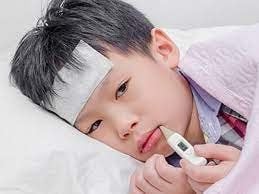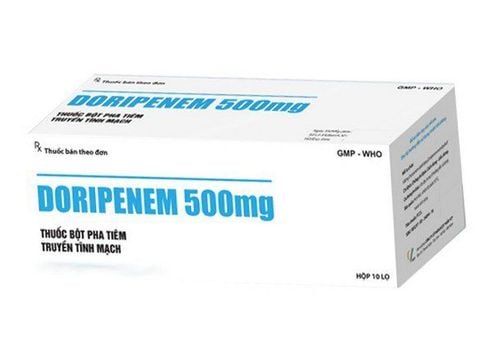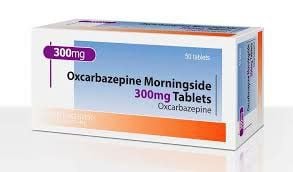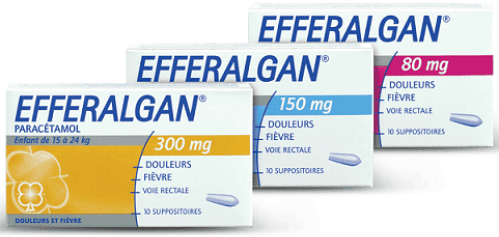This is an automatically translated article.
Febrile seizures are usually nothing to worry about although it can be scary to see a child having a seizure, especially for the first time. Most of the disease is completely cured, but in some cases it is necessary to take anticonvulsant drugs when the child has a high fever to limit brain damage.
1. What is a febrile seizure?
Febrile convulsion is a condition a child can get when a fever is very high, usually above 39 degrees. High fever causing convulsions is not synonymous with epilepsy, so it is important to distinguish between these two diseases to have appropriate treatment.
With febrile convulsion, the convulsion occurs only when the child has a high fever, short duration, temporary and does not cause complications, may appear as a single attack or several attacks. In the case of epilepsy, some seizures first appear with a fever, but later seizures occur even without a fever.
Children 3 months to 6 years of age can have a febrile convulsion, which occurs in 2-5% of all children. If a child's parents, siblings, or close relatives have had a febrile seizure, the child is at increased risk of developing it.
2. Treatment of febrile convulsions in children
Although a high fever that causes convulsions in children usually doesn't cause any long-term effects, there are important steps you need to take when your child has this condition:
The most important question to be answered In children, febrile convulsions are the cause. Even after the seizure stops, any young child with a febrile seizure should be seen by a doctor to make sure it's not a sign of a brain infection, such as meningitis. When a child has a fever, it is necessary to ensure that the body temperature does not exceed 37.5 degrees Celsius by removing some clothes, placing the child in a well-ventilated room, applying a cool compress to the whole body, and placing a fever-reducing suppository in the child's anus. prescribed by a doctor) to prevent fever from increasing. In case the seizure is not effective, the seizure lasts more than 5 minutes, the child should be taken to the doctor for medication to stop the seizure. When your child has a febrile convulsion, you need to put the child on his or her side, do not put anything in the child's mouth, do not restrict the child's movement due to the convulsion, remove or move any object. can harm the child during a convulsion (sharps....), check the duration of the convulsion. Call 911 right away if the seizure lasts more than 5 minutes or the child is not breathing.

Sử dụng thuốc chống co giật khi trẻ sốt cao cần đúng liều lượng.
3. How to use anticonvulsants when the child has a high fever?
Antipyretics should be used in patients presenting with discomfort secondary to fever. Antipyretics are unlikely to prevent recurrent febrile seizures. Maybe giving your child acetaminophen or ibuprofen at the onset of a fever may make your child more comfortable, but won't stop the seizure. Although aspirin is approved for use in children over 3 years of age, it should not be given to children and adolescents recovering from chickenpox or flu-like symptoms, as aspirin can cause Reye's syndrome, a rare but potentially life-threatening condition in children. The action guidelines do not recommend continuous or intermittent use of neuroleptics or benzodiazepines following a simple febrile seizure. There are no medications that have been shown to reduce the risk of seizures (i.e. seizures) following a simple fever. Although certain medications such as valproic acid (Depakene), diazepam (Valium), lorazepam (Ativan), and fosphenytoin (Cerebyx) are indicated for seizure control, they have not been clearly indicated for control of seizures caused by fever. Use of phenobarbital anticonvulsants for high fever (5 - 8 mg/kg body weight for children 2 to 24 months old and 3 - 5 mg/kg for children over 2 years old) Use anticonvulsants when children valproic acid type (10-15 mg/kg, maximum dose 60 mg/kg daily) consistently reduces the risk of recurrent febrile seizures but has significant side effects. However, Phenobarbital has been associated with transient sleep disturbances, memory loss, and impaired concentration. Valproic acid has been associated with hematopoietic disruption, nephrotoxicity, acute and chronic pancreatitis, and fatal hepatotoxicity. The intermittent use of oral diazepam has also been shown to reduce the risk of recurrent febrile seizures, but efficacy is limited. Hyperactivity was the most common side effect in the oral diazepam group, with other side effects such as lethargy and somnolence. Therefore, the use of the drug should be guided and prescribed by the doctor.
Please dial HOTLINE for more information or register for an appointment HERE. Download MyVinmec app to make appointments faster and to manage your bookings easily.













